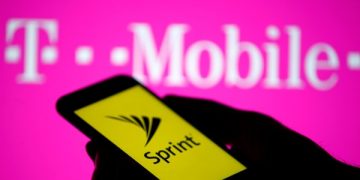A year-old dream of merging 2 of the most powerful wireless service providers came to a step closer to being a reality as the Chairman of the Federal Communications Commission (FCC) gave the nod to support this revolutionary $26.5 billion merger. But, the digital rights groups standing against the merging contract are certainly not on the cloud nine.
Phillip Berenbroick, a senior policy counsel at the Public Knowledge, stated that since last year when the proposal happened it was clear that it would undoubtedly harm the consumers and reduce competition and scope of innovation among organisations.
The campaigning group and the Free Press were quite oblivious by the list commitments T-Mobile and Sprint had to offer which, however, were gratifying enough to help FCC Chairman Ajit Pai to vouch for the merger.
The most eye-catching commitments some of which may also become imperative conditions of FCC’s approval are-
- A covenant to develop a 5G wireless network which reaches 99% of the Americans within 6 years of closing the deal.
- A promise to not raise the basic pricing for three years.
- An agreement to sell Sprint’s prepaid phone brand, Boost.
Free Press general counsel Matt Wood stated that none of those apparent benefits would neutralize this merger’s threats. Further commenting on the commitment of reaching every American through a 5G service he stated that both the companies were already building a 5G network apart from the deal. Wood emphasized the point that the only digital divide FCC should focus on is about the affordability.
Further discussions were held to which Matt Wood and Philip Berenbroick gave answers to the best of their beliefs and arguments. They are quoted as follows-
- What about the halt in the price upsurge?
Matt says that the 3 year stagnation of prices is useless in a market where the prices fall continuously and would tend to fall further if the deal stands cancelled.
Wood strongly states that keeping intact the competition among the 4 major carriers will have a dynamic impact on effective pricing. - What about the assurance of selling off Boost?
Berenbroick stated that the dealing off Boost is not in the benefit or favour of the prepaid customers. Further, he claimed that Boost was just another name for a service which used sprint’s network in the back-end.
Thus, the opposers of the deal remain persuaded that the deal will extravagantly affect the poor consumers who live on these prepaid phone plans.
Chairman Pai’s blessings along with the support of the Republican Commissioner Brendan Carr would likely be in favour of the FCC approving the transaction with a 3-2 vote ratio.
Being cynical about the deal, the Antitrust Authorities at the Department of Justice is reviewing the deal along with many state attorneys general. Relying on the DoJ and the state attorneys, Wood still hopes that the state attorneys general will help stop this merger. He believes that if the deal wouldn’t stop it would be a slap on the face of these ‘antitrust laws’.

























